Emergency Dentist — Tucson, AZ
Find Dental Pain Relief Right Away
Dr. Lopez is available for same-day emergency care whenever you have a knocked-out tooth, broken enamel, or another type of severe oral health issue that requires immediate attention. He has the education and experience to perform a vast array of dental procedures in-house, meaning he’ll be able to help you stop your pain and protect your smile no matter what the circumstances are. Be sure to save our dental office’s contact information, so you can call right away when time is of the essence for emergency dentistry in Tucson, AZ.
Why Choose Dr. Jay Lopez for Emergency Dental Care?
- Same-Day Emergency Appointments for Patients in Pain
- Comprehensive Dental Care All Under One Roof
- Safe & Reliable Sedation Dentistry Available
What to Do in a Dental Emergency

- Step 1: Give Us a Call for a Same-Day Emergency Appointment. When you call us with a dental emergency, we will give you first-aid instructions for how to handle your situation until your emergency appointment, which will usually be scheduled for that same day.
- Step 2: Get an Emergency Exam with Dr. Jay Lopez: Your Tucson emergency dentist Dr. Lopez will see you right away to examine you and get you out of any severe pain.
- Step 3: Review the Findings & Make a Treatment Plan. Once Dr. Lopez has had a chance to evaluate the extent and source of your emergency, he’ll fully explain all your treatment options and help you make a plan for getting your oral health back on track.
- Step 4: Find Dental Pain Relief Right Away: We’ll get to work repairing your smile and protecting your teeth right away. For patients who are particularly anxious or uncomfortable, we offer numerous sedation options so you can sit back and relax while getting the care you need.
The Most Common Dental Emergencies
There’s no single definition that suitably describes every kind of dental emergency you could experience, but most of them can be identified via persistent oral pain and noticeable dental damage. No matter what the underlying cause of the problem is, it will be up to you to perform first aid to keep your teeth as safe as possible before you can get to our dental office. Keep the following tips in mind to prepare for some particularly common emergencies.
Understanding the Cost of Emergency Dentistry
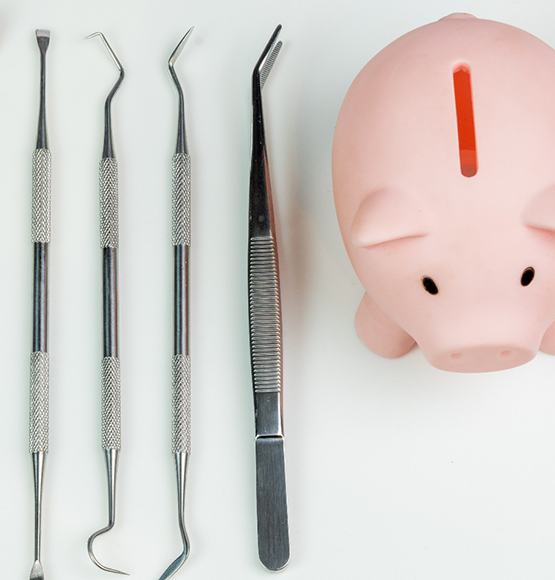
All dental emergencies require urgent attention, but they’re not all the same. The more complex cases will most likely call for more costly types of treatment. When we make recommendations for emergency dental care, we will go over the relevant costs in detail and make sure that you fully understand what you’re agreeing to if you choose to undergo the procedures in question. Below are a few things that you should keep in mind when considering the costs of dental emergencies.
Remember: Every Emergency is Different
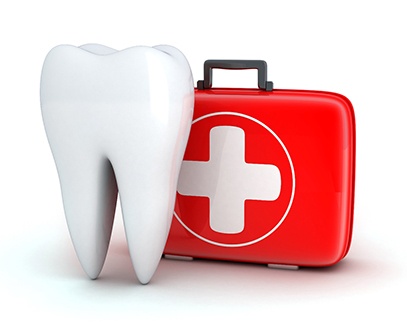
We can’t make any predictions about the cost of emergency care without first actually examining your mouth in person and figuring out the exact problem. Sometimes the solution is as simple and inexpensive as writing a prescription for some special mouthwash. More severe emergencies may call for extractions or root canal therapy, and that can lead to other associated costs. (For example, an extracted tooth will most likely need to be replaced.) Don’t worry about being surprised by the cost later; before we ask you to agree to anything, we’ll always go over all of your treatment options and explain how much you can expect to pay.
Does Dental Insurance Cover Dental Emergencies?
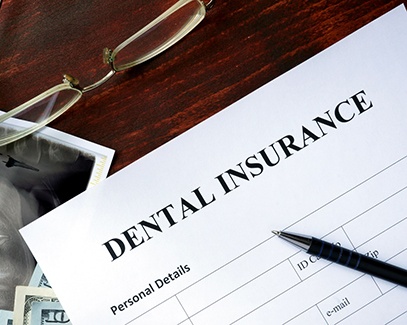
You can expect the average dental insurance plan to have some coverage set aside for emergency situations. Commonly, emergency benefits include at least one emergency exam per year and partial coverage for root canal therapy, crowns, extractions, and other procedures associated with hurting teeth. This isn’t necessarily the case for every emergency plan, though, and you will have yearly maximums to think about. Confirm your benefits with your insurance company before you commit to treatment.
Other Options for Making Dental Emergencies Affordable
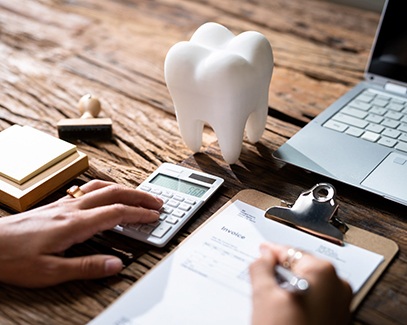
Insurance is not necessarily your only way to save money on emergency care. By signing up for our in-house membership plan, you can enjoy exclusive discounts off various procedures, including fillings and other treatments that are often necessary in the event of injured or decayed teeth. Additionally, there are multiple financing options for you to choose from. Each third-party financing option offers multiple plans that feature little to no interest and have no pre-payment penalties or hidden fees to worry about. Feel free to call us at any time to explore the available payment options.
Saving Money by Caring for Your Smile
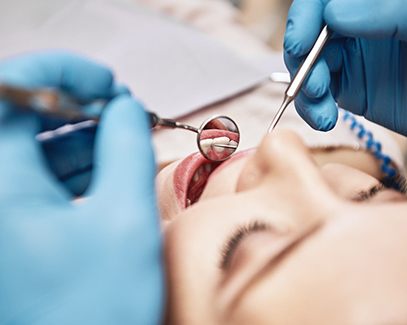
Some dental emergencies are unavoidable accidents, but many are the ultimate result of unchecked decay, untreated infection, or damage that built up over time. Routine dental appointments and a rigorous at-home oral hygiene routine can go a long way towards helping you protect your smile. Investing in checkups and cleanings now can potentially save you a lot of money later; letting small problems turn into big ones will likely cost you later down the line. For example, a tooth pain that can be treated with root canal therapy can eventually turn into extensive damage that forces us to extract it.
Keys to Preventing Dental Emergencies
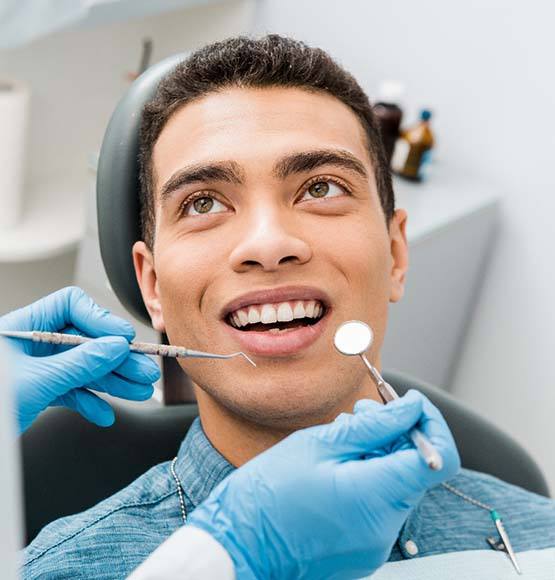
You may be able to improve your chances of avoiding a dental emergency by changing your daily routine. Brush and floss at least twice a day to lower the risk of decay or infections. Try to give up bad dental habits like chewing on your nails or using your teeth to open packages. Never bite down on peppermints, ice, popcorn kernels, or anything else hard enough to crack the enamel. Get a mouthguard to wear while participating in any physical activity where you risk getting hit in the mouth.
Visit Our Dental Office Regularly
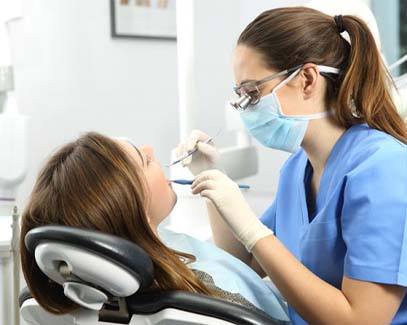
Six-month dental checkups and cleanings are critical for preventing emergencies. By regularly examining your mouth, Dr. Lopez can catch potential oral health problems early enough that he can stop them in their tracks before you’ve even noticed an issue! Our team can also remove deposits of plaque and tartar that have built up on your teeth and gums. You may have missed these areas in your at-home oral care, but our specialized dental tools can clear them away and greatly reduce your risk of decay and infection.
Maintain Good Oral Hygiene at Home
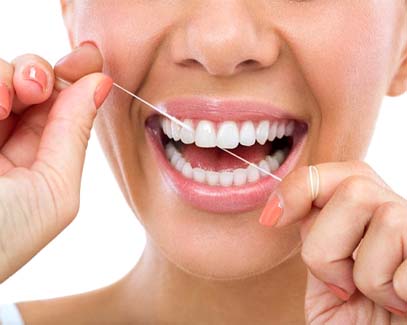
As essential as regular professional teeth cleanings are, the health of your smile also depends on your daily oral hygiene. Keeping your mouth clean will decrease the chance of plaque and tartar accumulating and causing cavities, gum disease, and other issues that require an urgent visit to our emergency dental office in Tucson. To keep your smile in pristine condition, you should:
- Brush your teeth every morning and every night for two full minutes each time.
- Floss at least once a day.
- Rinse with an antibacterial mouthwash every day.
Stick to a Nutritious Diet

The foods and drinks you consume have an enormous effect on your oral health. For example, cavity-causing bacteria in the mouth love feeding on sugary and starchy particles. Therefore, you can reduce your risk of tooth decay by eating sweets in moderation. Some mouth-friendly foods you can add to your diet include:
- Fish
- Almonds
- Leafy greens
- Celery, apples, and other fibrous fruits and vegetables
- Yogurt, cheese, and other white dairy products
Wear a Mouthguard
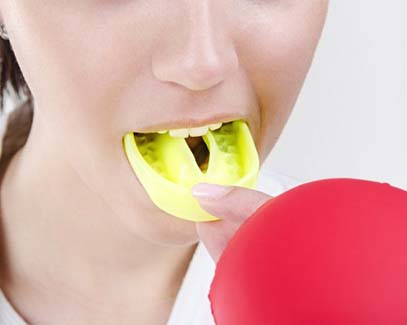
Sports-related dental injuries are quite common. That’s why wearing a mouthguard is key. Dr. Lopez can make you a custom mouthguard designed to fit snugly over your teeth, providing protective cushioning in the event of an impact to the face.
He can also give you a personalized nightguard if you have a habit of grinding your teeth in your sleep. Over time, this condition (called bruxism) can weaken your tooth enamel and leave it more susceptible to fractures. A nightguard can protect your pearly whites against harmful nocturnal contact.
Don’t Use Your Teeth to Open Packages

No matter how excited you might be to open a newly delivered package, NEVER use your teeth to do the job. It may seem convenient, but you could all too easily break a tooth or injure your gums. Instead, take a few moments to grab a box cutter or another appropriate tool instead. Your smile will thank you for it!
Emergency Dentistry FAQs

Acting quickly and minimizing the chances of sustaining additional oral damage during a dental emergency in Tucson is difficult, especially when you don’t have a reliable professional that you can call. We recommend that families in our community take a moment to program our phone number into their cellphones, so they have someone to call in case the unexpected happens. Below, we’ve provided some helpful answers to some of the most common questions that we receive about emergency dentistry. If you don’t see the information you’re looking for, feel free to reach out to our team!
How can I bring down facial swelling?
If your cheek is swelling due to an infection or trauma, you can bring it down by placing a cold compress on your face for 10-minute increments, for up to an hour at a time.
What does it mean if my toothache suddenly disappears?
If your toothache suddenly disappears, it doesn’t mean that there’s no longer a problem. In fact, for patients who have dental infections, this could mean that the nerves in the tooth have died and the infection is getting worse. That’s why we recommend contacting your emergency dentist in Tucson as soon as you notice any out-of-the-ordinary symptoms, so we can minimize the damage to your smile.
Will my dental insurance cover a visit to the emergency dentist?
The cost of your emergency dental visit will depend on the type of treatment you need, which can only be determined after you’ve had your mouth examined and the issue at-hand has been diagnosed. That being said, many dental policies cover at least a portion of the cost of emergency appointments. The best way to learn whether yours will is to contact your insurance company directly and ask. Plus, our team is in-network with countless PPO plans, so you can save from additional out-of-pocket expenses when you visit us.
Should I visit the ER or an emergency dentist?
While your first instinct may be to go to the emergency room to address oral pain like a toothache or broken tooth, it’s not always the best option. Hospitals don’t typically have dentists on-staff, so they can’t administer treatments that can provide you with lasting relief or address the problem at hand. Most of the time, they can only prescribe medication to help with pain or antibiotics and may refer you to a dental specialist. That’s why we recommend calling our office first. We often recommend coming to us, unless you’re having life-threatening symptoms that are impacting your ability to breathe or swallow. In these cases, you should visit the ER first.
Can the emergency room remove a tooth?
Sadly, an ER isn’t equipped to pull teeth. Only licensed dentists are allowed to perform tooth extractions. As such, the procedure is illegal for those without proper training and education. That fact even applies to hospital staff and workers.
At most, an ER could provide you with antibiotics and pain medication. These resources would help you manage until you can see a dentist. However, they wouldn’t treat your toothache’s underlying source.
Furthermore, an extraction may not be needed. Root canal therapy can often ease tooth pain and save your pearly white. Ultimately, only a dentist will know what treatment you need.
Is my tooth pain from an infection?
A toothache doesn’t always stem from an infection. At times, it may have other sources. Whether the pain is infection-related will depend on its type.
If your tooth is throbbing or sore, it’s likely due to an infection. This symptom is often caused by bacteria reaching a dental nerve. To further confirm, make sure to look for other relevant signs. These include a bitter mouth taste, chronic bad breath, tooth sensitivity, and a loosening of teeth.
Of course, the only way to know for sure is to see a dentist. They can take X-rays and provide a detailed diagnosis.
Do chipped teeth heal?
True enough, enamel is the hardest bodily substance. You might think such material could grow back. However, the truth is that chipped teeth can’t heal on their own.
You see, enamel isn’t living tissue. It’s mostly made of minerals like calcium and phosphorus. Therefore, it can’t grow back lost portions. At best, teeth can only re-mineralize – repair the enamel they still have.
In general, only restorative or cosmetic procedures can change a tooth’s shape. They might place a crown or veneer to protect a pearly white further. Alternatively, you might get a filling to preserve a chipped tooth’s structure.
Can I fix dentures that are broken in half?
Honestly, no – you can’t fix broken dentures on your own. If the prosthetic fully breaks in half, only a skilled prosthodontist can repair it. Trying to do so yourself will worsen things.
Regarding a broken denture, there are various steps a dentist might take. One option is to replace the entire appliance. Alternatively, they could carry out a thorough repair process. Either way, you’d use a spare denture in the meantime (if you have one). Just don’t let it become the one you use regularly.
Dental Implants Sedation Dentistry Preventive Dentistry Periodontal Treatment Restorative Dentistry Cosmetic Dentistry Orthodontics & Clear Aligners Wisdom Tooth Extractions Sleep Apnea Therapy TMJ/TMD Therapy View Our Services
